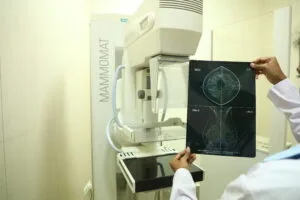Obesity and Its Effects on the Body

Obesity is defined as abnormal or excessive fat accumulation that presents a health risk.
Once considered a health issue of wealthy nations, it is rapidly reaching epidemic proportions in India as well.
The 2015-16 National Family Health Survey found that:
- 21% of women in India were overweight or obese
- 19% of men in India were overweight or obese
Obesity isn’t just a cosmetic concern. It’s a medical problem that increases the risk of other diseases and health problems, such as heart disease, diabetes, high blood pressure, and certain cancers.
Body mass index (BMI) is often used to diagnose obesity. To calculate BMI, divide weight in kilograms by height in meters squared.
i.e. BMI = weight (kg) / height (m)2
| BMI | Weight Status |
| Below 18.5 | Underweight |
| 18.5 – 24.9 | Normal |
| 25.0 – 29.9 | Overweight |
| 30.0 and higher | Obesity |
However, due to our genetics, Indians are at a higher risk even with a BMI of 23 or higher.
RISK FACTORS
Obesity usually results from a combination of causes and contributing factors:
- Genetic factors & family influence: The genes you inherit from your parents may affect the amount of body fat you store, and where that fat is distributed. Obesity tends to run in families. That’s not just because of the genes they share. Family members also tend to share similar eating and activity habits.
- Lifestyle choices:
- Unhealthy diet: A diet that’s high in calories, lacking in fruits and vegetables.
- Liquid calories: Alcohol and other high-calorie beverages, such as sugary soft drinks, can contribute to significant weight gain.
- Sedentary lifestyle: If you have a sedentary lifestyle, you can easily take in more calories every day than you burn through exercise and routine daily activities.
- Certain diseases and medications:
- In some people, obesity can be traced to a medical cause, such as Cushing’s Syndrome and other conditions. Conditions such as arthritis can also lead to decreased activity, resulting in weight gain.
- Some medications can lead to weight gain if you don’t compensate through diet or activity. These medications include some antidepressants, anti-seizure medications, diabetes medications, antipsychotic medications, steroids, and beta-blockers.
- Certain diseases and medications:
- Age: Obesity can occur at any age, even in young children. But as you age, hormonal changes and a less active lifestyle increase your risk of obesity.
- Lack of sleep: Not getting enough sleep or getting too much sleep can cause changes in hormones that increase appetite. You may also crave foods high in calories and carbohydrates, which can contribute to weight gain.
- Stress: Many external factors that affect mood and well-being may contribute to obesity. People often seek more high-calorie food when experiencing stressful situations.
COMPLICATIONS
People with obesity are more likely to develop several potentially serious health problems, including:
- Heart disease and strokes
- Type 2 diabetes
- Certain cancers – increases the risk of cancer of the uterus, cervix, endometrium, ovary, breast, colon, rectum, esophagus, liver, gallbladder, pancreas, kidney, and prostate.
- Digestive problems
- Sleep apnea
- Osteoarthritis – obesity increases the stress placed on weight-bearing joints, leading to complications such as osteoarthritis.
- Severe COVID-19 symptoms – obesity increases the risk of developing severe symptoms if you become infected with the virus.
- Depression
WHAT CAN YOU DO?
- Dietary changes: Reducing calories and practising healthier eating habits are vital to overcoming obesity. Although you may lose weight quickly at first, steady weight loss over the long term is considered the safest way to lose weight and the best way to keep it off permanently.
- Exercise and activity: Increased physical activity or exercise is an essential part of obesity treatment.
- Monitor your health: Regular health check-ups to monitor for the complications of obesity so early intervention becomes possible.
If you find it difficult to make lifestyle changes, seek help from a physician. Counselling and support groups can also be helpful.
Check your BMI and get a health check-up done today.



